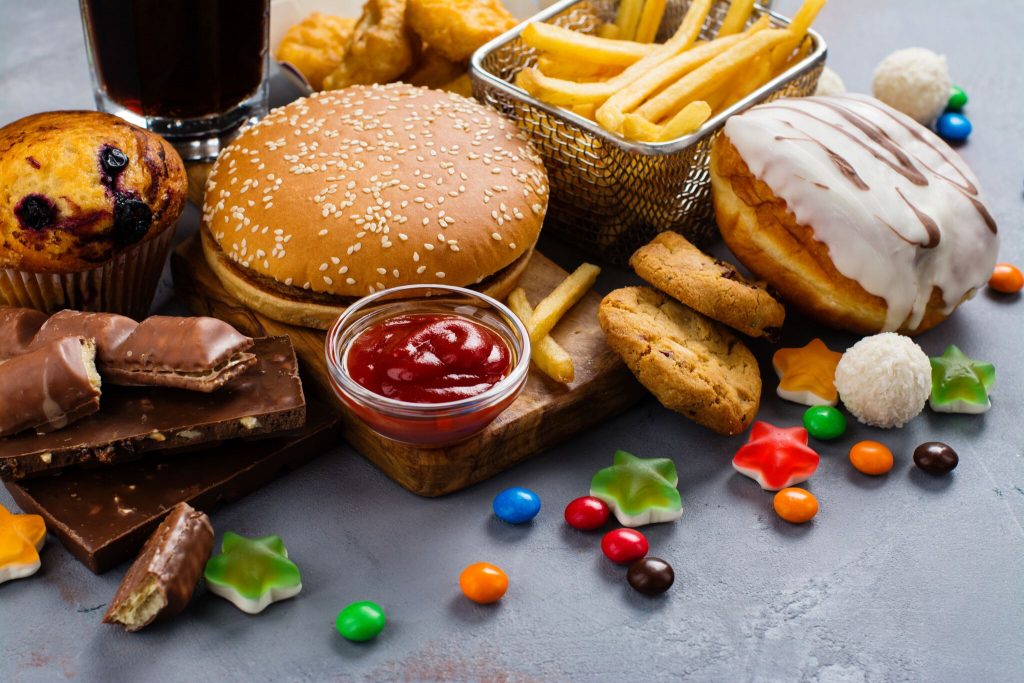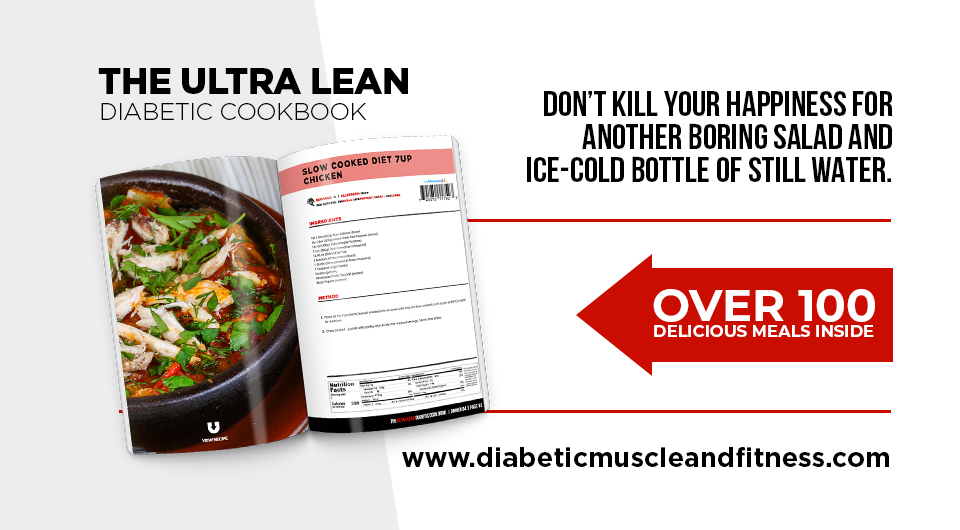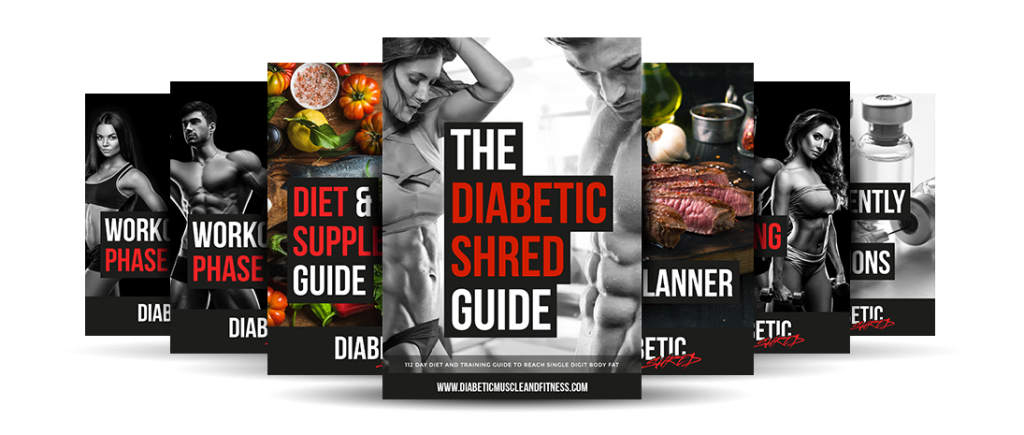Quick Summary
- People with diabetes can eat junk food, provided they monitor their calorie intake and dose their medication accurately.
- Junk food should never make up the bulk of your diet, even if the food choices fit your calorie needs.
- Junk food isn’t filling and may leave you feeling hungry. This can be problematic for fat loss.
- People with diabetes need to be vigilant with blood glucose management when including junk food in their diets.
CAN YOU EAT JUNK FOOD IF YOU HAVE DIABETES?
The simple answer is YES.
You can include junk food as part of your daily eating regime if you live with diabetes.
However, this doesn’t mean you can eat as much Oreos, Ben & Jerrys and Pizza as you like. There are certain rules and principles you must respect before you rush off and start snacking.
First, let me ask,
Is junk food good for you?
Honestly? Is It…?
Are there any benefits to including junk food in your diet?
Ask a health professional or someone on the street, and their first reaction will be a confident ‘NO’.
‘Junk food is not healthy and should be avoided or kept to an absolute minimum.’
Let’s explore this common dogma a little more.
Here are the main reasons why most people have a negative perception of junk food:
- Junk food is high in calories and increases fat gain.
- Junk food is low in vitamins, minerals and fibre.
- Junk food doesn’t fill you up and increases your chances of overeating the rest of the day.
- Junk food can spike blood glucose levels, increasing the potential for hyperglycemia.
- Dosing the correct amount of insulin with different types of junk food can be challenging and increase the potential for hypoglycemia.
All of these points are true.
However, these negative aspects only become apparent when junk food is overeaten or makes up the bulk of someone’s diet.
THERE IS NO SUCH THING AS A GOOD OR BAD FOOD. JUST GOOD OR BAD DIETS.
Too many people look at food in isolation, blaming individual foods as the sole cause of obesity and other metabolic disorders like diabetes.
This couldn’t be further from the truth.
Excess calories and low levels of physical activity are the main reason for today’s obesity epidemic. This is a huge topic well outside the scope of this article.
IT’S BETTER TO REVIEW YOUR DIET OVER A PROLONGED PERIOD OF TIME. NOT JUST ONE DAY. THINK ACROSS THE WEEK, MONTH AND YEAR.
For example, if you maintain your bodyweight on 2500kcals.
Which diet would prove more healthful?
A. 2500kcal of entirely fresh, whole minimally processed fruits, vegetables, dairy and meat.
Or,
B. 2500kcal of Oreos and processed beef burgers.
The answer is ‘Option A’ of course.
Even though both diets yield the same energy, Option A provides you with all the essential nutrients, vitamins minerals and fibre; whereas, option B is lacking and will inevitably pose a nutritional health deficiency risk if consumed over the long term.
Now, If I added a third option that included
C. 2500kcal of mixed food sources, with 2000kcals coming from fresh, whole minimally processed fruits, vegetables, dairy and meat and 500kcals coming from Oreos and other sources of junk food goodness.
Would this be unhealthy?
Not necessarily.
The bulk i.e. 80% (2000kcals) of the diet is made up of whole foods and a mere 20% (500kcals) is comprised of junk.
It still allows me to control my energy balance, body weight and obtain all my essential nutrients, whilst at the same time include 500kcals of junk food for intuitive or social nibbles if I really wanted it.
YOU CAN TACTFULLY INCLUDE JUNK FOOD AS PART OF YOUR DIABETIC BODYBUILDING AND FITNESS REGIME.
Some people call this style of eating ‘If It Fits Your Macros – IIFYM’ or flexible dieting.
If It Fits Your Macros and Insulin sound pretty cool.
I digress.
Call it whatever you want.
The flexible dieting approach has been shown to be superior to a more rigid-type approach (e.g. clean eating) for long-term weight loss/maintenance in the research. 1,2
This terminology simply represents three important principles involved in goal-orientated diabetic bodybuilding nutrition.
#1 Energy balance.
Calories are important.
Provided your diabetes is kept in control, weight loss is pretty much the relationship between calories consumed from food versus calories expended by the metabolism, physical activity and exercise.
- When people are in a caloric deficit, they always lose weight.
- When people are in a caloric surplus, they always gain weight.
Eat within the lines – according to your goal.
#2 You are what you do on average.
In other words, if you eat the bulk of your diet from low-quality junk food, you will look and feel like junk. Hence, why fresh, whole minimally processed food MUST make up the bulk of your dietary intake.
As a general rule of thumb, I try to eat 70% + of my diet from whole food ingredients, but with up to 30% from junk. Very rarely do I go crazy and consume 50% + of my diet from junk food, bar Christmas. Then again that’s only 1 day out of 365 per year. See my point?
You are what you do and ‘eat’ on average.
#3 Adherence.
Modern food technology and marketing tantalise our taste buds and get us salivating from the moment we wake up to the moment we go to bed. We are faced with so much more pressure to eat nowadays than ever before. Add to that the convenience of foods – we are spoilt for choice.
Sometimes you have to face it.
A cold chicken salad won’t cut it. But your favourite chocolate bar will.
What do you do?
- Give in and then feel guilty for eating a ‘bad’ food.
- Be strong and restrict yourself, until you crack at the weekend and end up eating more chocolate than you could ever imagine.
Been there done that.
Feeling restricted is one of the biggest reasons why most diets fail.
If people only knew how to tactfully manage ‘desired’ junk food choices within their calorie intakes, we would undoubtedly see less obesity and more sustained fat loss.
What about ‘clean eating’ for people with diabetes?
The popularly coined way of dieting ‘clean eating’ has no real definition.
How do you know what you’re eating is ‘clean’?
Rather than focusing on ‘clean’ eating.
Get your calorie intake right,
Eat a colourful diet,
Vary your vegetable, fruit, meat and dairy sources,
Don’t overly restrict food groups
If you want a little bit of junk food, eat it.
Just ensure you cover it with the right amount of medication. Note as many details down as possible,
- Calorie intake
- Carb intake (this affects blood glucose the most)
- Protein (also affects blood glucose levels)
- Blood sugar before eating
- 45 mins to 120 mins after eating.
- Insulin Dose
- Any stress or physical activity that may have influenced blood glucose levels between eating and injecting.
Keeping a tab on all these details will help paint a better picture of how your blood glucose will behave when you consume certain foods leading to better long-term blood glucose control.
Check out this video of me eating ice cream in Barcelona. I discuss how I manage my own diabetes whilst eating sugary junk foods.
JUNK FOOD IS A USEFUL TOOL FOR HYPO PREVENTION.
Sugary drinks and confectionary are rapid treatments for hypoglycemia. If fat loss is your main bodybuilding goal, focus on using fast-acting carbohydrate sources of junk food that are low in fat and protein.
These foods bring blood glucose back into range faster than mixed macronutrient foods. You also avoid the unwanted consumption of fat and protein calories, which can add up over time.
Take Home
- People with diabetes can include junk food as part of a healthy muscle building and fat loss diet.
- The danger is in the dose. Never let junk food comprise the bulk of your diet. It’s generally low in vitamins, minerals, protein and fibre.
- Blood sugar levels may be more prone to hyperglycemia especially as you vary junk food choice and timing.
- Fast acting carbohydrate forms of junk food can be useful in treating hypoglycemia.
- Obsess over keeping your blood glucose levels in range. Track your food, medication, and how your blood sugars respond to set foods. This will allow you to predict and dose in the future. This may take some time.
As long as the bulk of your nutrition comes from high-quality foods, you keep your diabetes well managed, your body fat in check, avoid chronic stress, get enough sleep and are regularly active, you are going to be successful with your bodybuilding and strength training efforts.
I have incorporated these exact nutritional tactics into my incredibly popular Diabetic Shred 112 Day Body Transformation Guide. The transformations and results people are achieving are incredible. Every day I am tagged in posts by people with Type 1 and Type 2 diabetes who are now increasingly mindful of their calories, not feeling restricted, and are losing large amounts of body fat while still eating the foods they love like burgers, ice-cream and chocolate.
References
- Stewart TM, Williamson DA, White MA. Rigid vs. flexible dieting: association with eating disorder symptoms in non-obese women. Appetite. 2002 Feb;38(1):39-44.
- Stotland S. Moderation: an alternative to restraint as a mode of weight self-regulation. Eat Behav. 2012 Dec;13(4):406-9.



